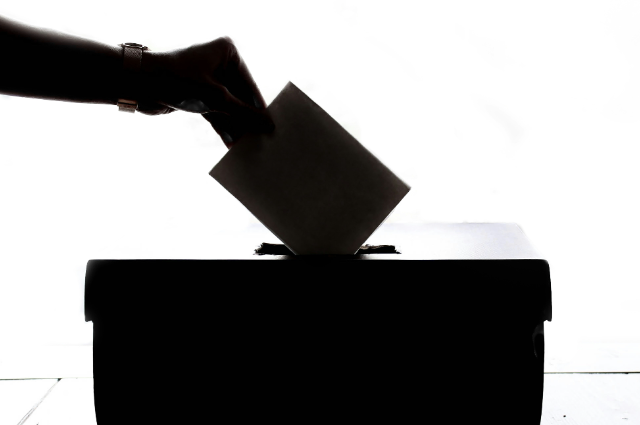
Photo by Element5 Digital on Unsplash
In a democracy, the right to vote is more than just a privilege—it's the very foundation of the system. It is the mechanism through which citizens express their will, hold leaders accountable, and shape the policies that govern their lives. Yet, even in the world's largest democracies, the right to vote is under threat from voter suppression, misinformation, disenfranchisement, and systemic inequalities. Safeguarding this right is not only essential—it is urgent.
The Heart of Democracy
Voting is the lifeblood of any representative democracy. It empowers citizens to choose their leaders, influence legislation, and direct the course of the nation. This simple yet powerful act determines who makes decisions on issues ranging from healthcare and education to economic development and foreign policy.
When citizens lose access to free and fair elections, democracy itself begins to wither. The legitimacy of a government rests on the consent of the governed, and that consent is expressed at the ballot box.
Global and Indian Context
Across the globe, countries have witnessed attempts to undermine electoral integrity. From foreign interference in U.S. elections to restrictions on opposition parties in authoritarian regimes, the dangers are real. In India, the Election Commission of India (ECI) has played a pivotal role in conducting elections across a diverse and vast population. However, concerns have grown over issues such as:
Voter deletion and disenfranchisement: Reports have surfaced in recent years about voters—especially from marginalized communities—being removed from rolls without adequate notice.
- Accessibility challenges: People with disabilities, senior citizens, and those in remote areas often face logistical and physical barriers to voting.
- Misinformation campaigns: False information spread via social media platforms confuses voters and erodes trust in the electoral process.
- Money and muscle power: The increasing influence of black money and coercion undermines free choice.
The Danger of Complacency
One of the biggest threats to the right to vote is the belief that it is guaranteed and unassailable. History tells us otherwise. In the U.S., despite the Voting Rights Act of 1965, many states have introduced restrictive voter ID laws and limited polling locations in minority areas. In some African nations, voter intimidation and outright violence deter citizens from participating.
The danger lies in the gradual erosion of rights. It doesn’t always happen overnight. It happens when gerrymandering goes unchecked, when voter rolls are purged quietly, and when apathy replaces activism.
Legal and Constitutional Framework
In India, the right to vote is enshrined in the Constitution and the Representation of the People Act, 1951. Article 326 ensures that every citizen above 18 years of age has the right to vote. However, this right is subject to certain disqualifications laid out in law, such as mental unsoundness or criminal conviction.
But legal rights are only effective when backed by strong institutions and public will. The judiciary, civil society, media, and citizens must act as watchdogs. The courts, in several landmark cases, have upheld the right to free and fair elections, including the famous People’s Union for Civil Liberties vs. Union of India case, which introduced the ‘None of the Above’ (NOTA) option.
Digital Dangers and New-Age Challenges
The digital age has brought both opportunity and risk. On one hand, technology allows for faster voter registration, remote voting possibilities, and easier dissemination of information. On the other hand, it opens doors to manipulation. Deepfakes, targeted misinformation, and data misuse pose a serious threat to voter autonomy.
India’s push towards Electronic Voting Machines (EVMs) has generally improved efficiency, but concerns about transparency and tampering remain. Although the ECI insists on its security, a robust mechanism for independent auditing and public trust-building is essential.
What Needs to Be Done?
- Strengthen Electoral Reforms: Introducing laws to cap campaign spending, enforcing stricter penalties for voter intimidation, and ensuring transparency in party funding are critical steps.
- Educate the Electorate: Voter awareness programs must go beyond just how to vote. Citizens need to understand the value of their vote, how to identify misinformation, and how policies affect them.
- Empower Marginalized Groups: Focused efforts must be made to ensure that tribal populations, Dalits, women, LGBTQ+ individuals, and the differently-abled are able to participate fully in the democratic process.
- Ensure Institutional Independence: The Election Commission must remain autonomous, impartial, and empowered to act against violations, free from political pressure.
- Leverage Technology Responsibly: Technology must be used to enhance accessibility and transparency, not for manipulation. Cybersecurity measures and ethical AI use in electoral systems are vital.
The Role of Civil Society
NGOs, citizen groups, and independent watchdogs play a critical role in monitoring elections, conducting parallel vote tabulation, and reporting violations. A vigilant society is a democratic society.
Youth participation is especially crucial. With over 65% of India’s population under 35, empowering young people to take part in governance through voting is the key to building an inclusive, forward-looking nation.
Conclusion
Safeguarding the right to vote is not a one-time task—it is an ongoing responsibility. Democracies are fragile by nature and require active participation, constant vigilance, and unwavering commitment to equality and justice.
To protect the soul of democracy, we must protect the sanctity of the vote. Every citizen must recognize their vote as not just a right, but a duty—because when the vote is silenced, so is the voice of the people.
